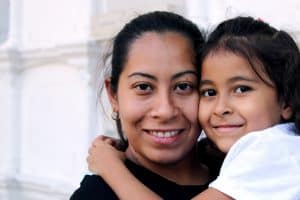As more and more countries around the world are rolling out Covid vaccines in phases, priority is given to more vulnerable groups such as older population, those with other chronic health conditions and people with high exposure to the visors such as frontline workers. Children and pregnant women have been excluded from initial phases of the vaccines rollout. Depending on where you are in the World, you might have access to different vaccines already or at some point in near future.
Which vaccines have been tested on pregnant women?
In general, none of the vaccines have been clinically tested on pregnant women yet. However, limited evidence from women who got vaccinated while pregnant or got pregnant within 3 months of vaccination have not recorded any pregnancy complications other than normal levels.
Can a pregnant woman or fetus get Covid-19 infection with the vaccine?
Essentially three types of vaccines are in use across the World:
- mRNA vaccines such as Pfizer-BioNTech and Moderna that do not contain a live virus. Therefore, it is not possible to get an infection with these vaccines. They act locally, in the muscle cells surrounding the injection site and cannot enter into cells’ nucleus, thus it has no effect on DNA. Limited animal studies haven’t revealed any harmful effects during pregnancy
- Non-replicating viral vector vaccines such as Astra Zeneca (used as Covishield in india), Johnson & Johnson and Sputnik V introduce a safe, modified version of the virus – known as “the vector” – to deliver genetic code for the antigen. The viral DNA does not alter human DNA and cannot cause infection.
- Whole virus vaccines such as Covaxin, Sinopharm and Sinovac use a weakened or deactivated form of the pathogen that causes COVID-19 to trigger protective immunity to it. The two vaccines mentioned above – Sinopharm and Sinovac – both use inactivated pathogens, therefore they cannot infect cells and replicate, but can trigger an immune response.
Are pregnant women advised to take Covid-19 vaccine?
Initially World Health Organization had advised against administering covid vaccines for pregnant women as current trials for vaccines did not include pregnant women. However, later they shifted their advisory due to backlash. Now, the organization says pregnant people with a high risk of exposure to COVID-19 or who have health conditions that increase their risk of severe disease may be vaccinated.
Here is a list of country-wise guidance on which vaccines are being administered and what is the official stance around vaccination for pregnant women:
Here is a list of country-wise guidance on which vaccines are being administered and what is the official stance around vaccination for pregnant women:





















